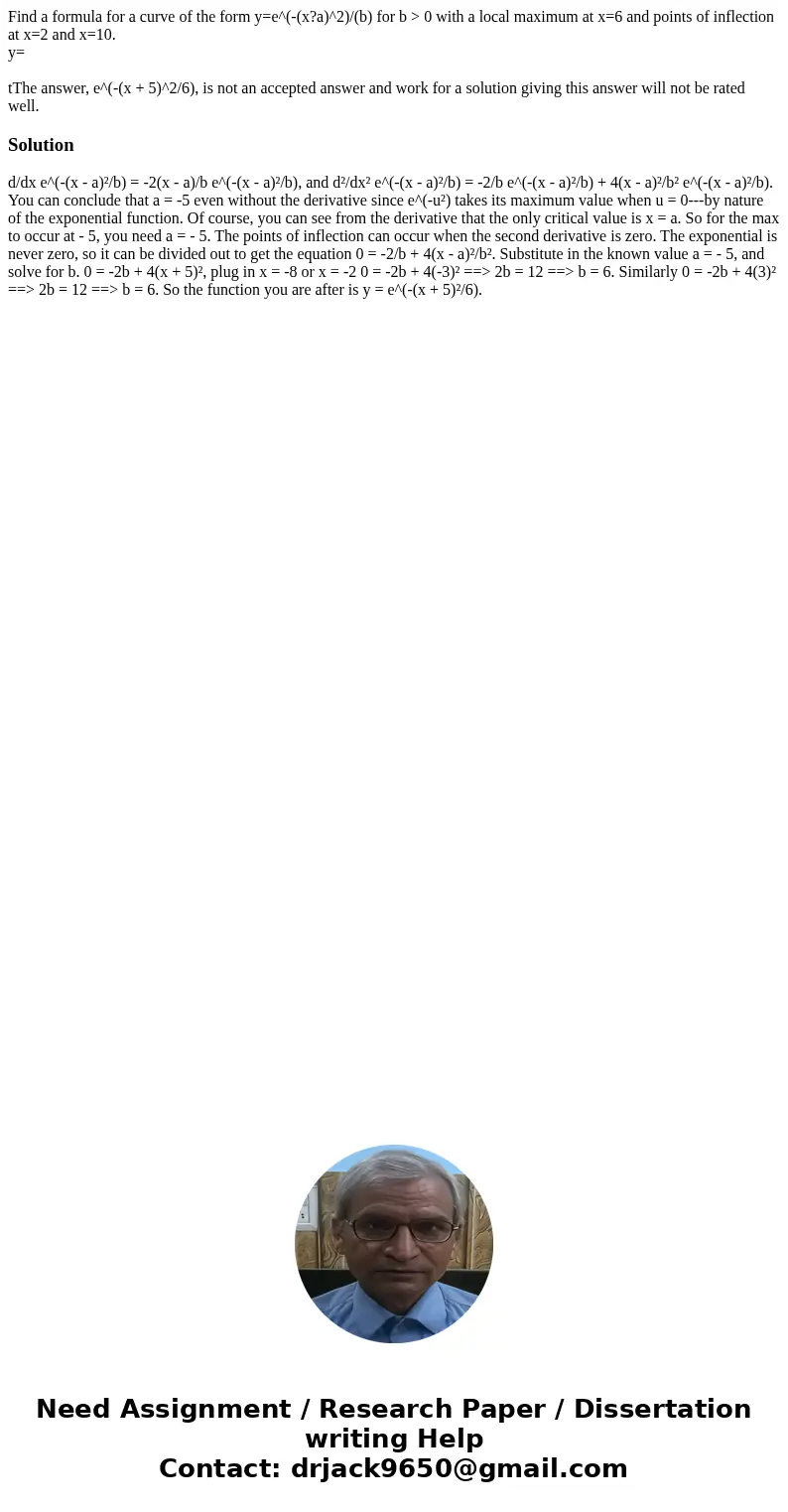Find a formula for a curve of the form yexa2b for b 0 with
Find a formula for a curve of the form y=e^(-(x?a)^2)/(b) for b > 0 with a local maximum at x=6 and points of inflection at x=2 and x=10.
y=
tThe answer, e^(-(x + 5)^2/6), is not an accepted answer and work for a solution giving this answer will not be rated well.
y=
tThe answer, e^(-(x + 5)^2/6), is not an accepted answer and work for a solution giving this answer will not be rated well.
Solution
d/dx e^(-(x - a)²/b) = -2(x - a)/b e^(-(x - a)²/b), and d²/dx² e^(-(x - a)²/b) = -2/b e^(-(x - a)²/b) + 4(x - a)²/b² e^(-(x - a)²/b). You can conclude that a = -5 even without the derivative since e^(-u²) takes its maximum value when u = 0---by nature of the exponential function. Of course, you can see from the derivative that the only critical value is x = a. So for the max to occur at - 5, you need a = - 5. The points of inflection can occur when the second derivative is zero. The exponential is never zero, so it can be divided out to get the equation 0 = -2/b + 4(x - a)²/b². Substitute in the known value a = - 5, and solve for b. 0 = -2b + 4(x + 5)², plug in x = -8 or x = -2 0 = -2b + 4(-3)² ==> 2b = 12 ==> b = 6. Similarly 0 = -2b + 4(3)² ==> 2b = 12 ==> b = 6. So the function you are after is y = e^(-(x + 5)²/6).
 Homework Sourse
Homework Sourse